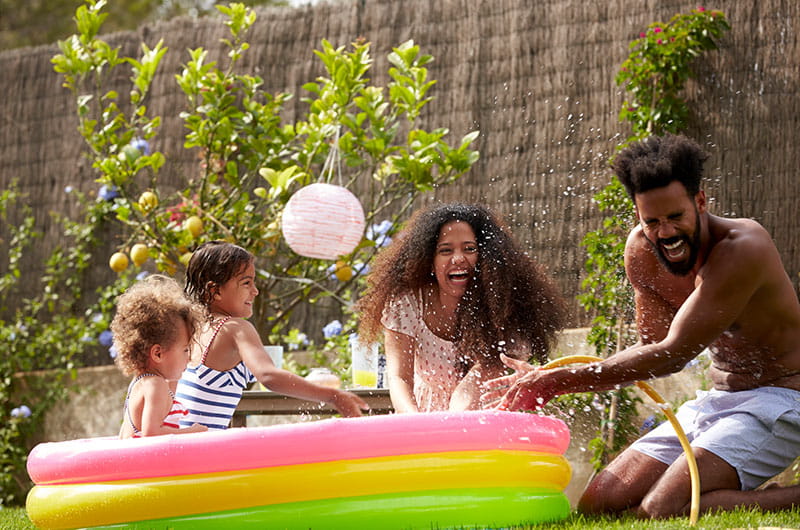Follow these tips to stay healthy in the summer heat

With longer and warmer days, summer is the perfect time to enjoy the outdoors. Following these four simple tips can increase the odds you'll surf through the season healthier than when it started and without so much as a sunburn.
Avoid food poisoning
People are lighting up the grill for afternoon picnics, and the food is delicious. Just make sure there is no aftermath from the picnic. Improperly prepared or stored food causes millions of cases of food poisoning every year. This can lead to nausea, vomiting, diarrhea and, rarely, death.
To reduce your risk of foodborne illness:
- Wash your hands, cookware and surfaces after handling or preparing food
- Keep raw and prepared foods separate
- Cook meats to the proper temperature
- Defrost food in the refrigerator
- Refrigerate perishables within two hours
Overall, the frequency of foodborne illness in the United States is low, but it can easily put you out of commission for a few days. It’s best to stay safe and avoid it.
Practice water safety
Pools, lakes and the beach epitomize summer joy. However, not taking proper safety precautions can lead to tragedy.
Over 4,500 people died due to drowning each year from 2020–2022, according to the Centers for Disease Control and Prevention.
Giving rescue breaths in addition to chest compressions is especially important during CPR in drowning cases, according to the American Heart Association.
Drowning is a great danger for children. It is the leading cause of death for children ages 1-4, and it remains the second leading cause of unintentional injury-related death for children and teens ages 5-15.
To stop such tragedies from occurring, pools should not be accessible to young children, and there should always be an adult present when young children are in the pool. Familiarity with water depth is also very important, as healthcare professionals see diving accidents that often result in spinal cord injuries — typically among teenagers.
Stay hydrated
Drinking enough water sounds like the easiest thing in the world. After all, we have a built-in hydration detector known as thirst. But that isn’t foolproof.
Elderly people don’t have as strong of a thirst response and can get dehydrated without feeling thirsty.
Signs of dehydration can include dizziness, fatigue or confusion. Dark-colored urine is another sign to drink something as soon as possible. Severe dehydration can lead to heat stroke, urinary and kidney problems, seizures and even death.
To counter dehydration, carry a water bottle and sip from it throughout the day.
Exercise, but with caution
While exercise is key to health and well-being, too much activity when the sidewalk is sizzling can cause potentially dangerous heat-related injuries.
Muscle pains or cramps, excessive sweating and headache or dizziness are signs it’s time to cool down and drink water. But if you begin to experience dizziness, confusion, nausea or vomiting or a body temperature of 104 degrees or higher, it could be a sign of a heat stroke – a dangerous, life-threatening condition. In that case, it's time to call 911.
Experts recommend limiting outdoor exercise to early morning or late afternoon, staying in the shade during the hottest part of the day and wearing a hat or long clothing to cover the skin.
These measures will also help to protect against the ultraviolet light that causes sunburn and increases skin cancer risk.
The CDC recommends applying a thick layer of sunscreen with a sun protection factor, or SPF, of 15 or higher that blocks both UVA and UVB rays. So, make sure to lather up.





